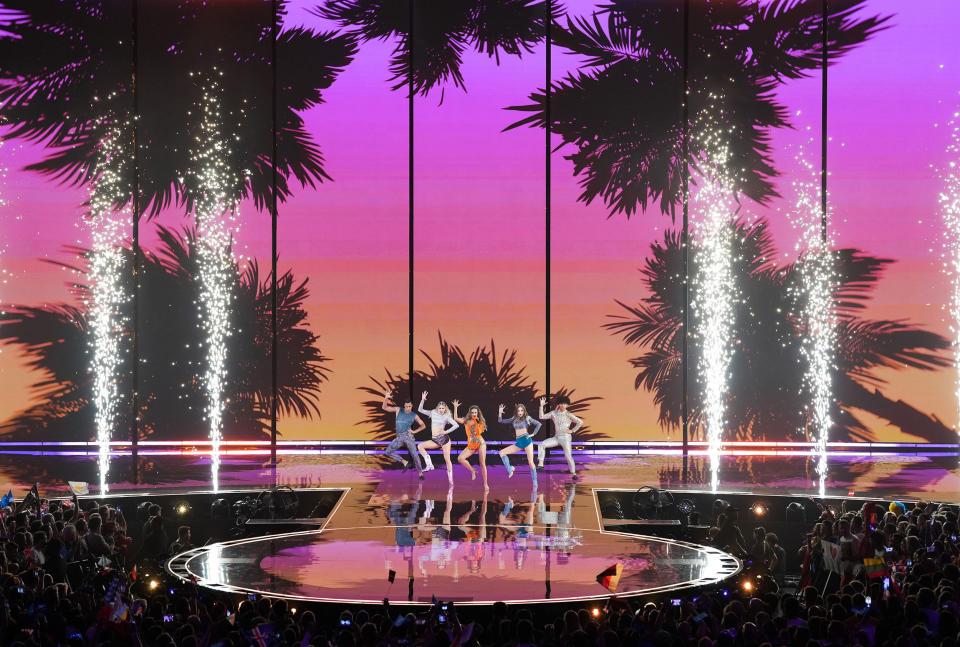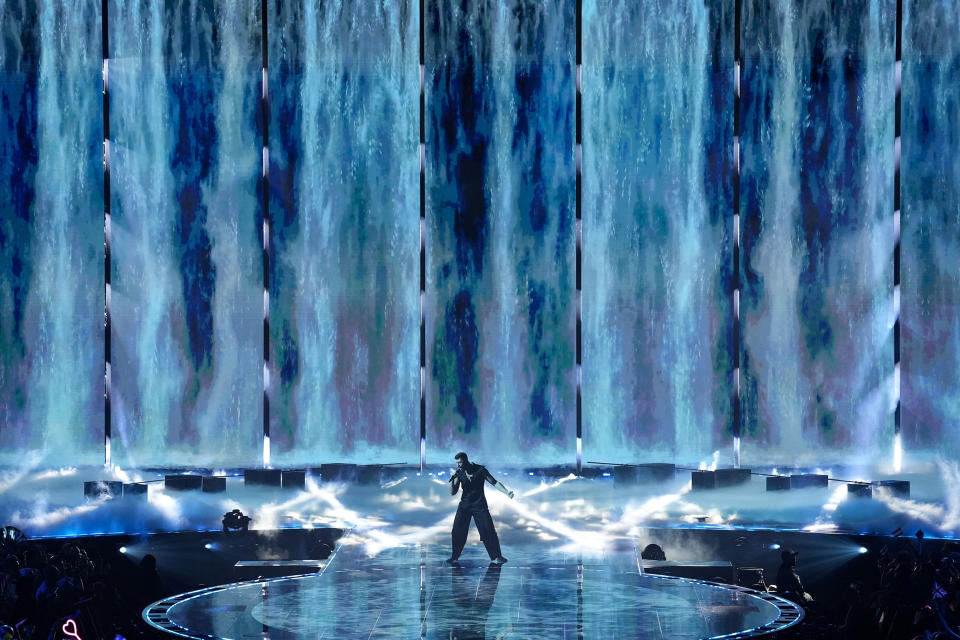Why these Americans are obsessed with Eurovision: 'Craziness, campiness, and just fun'
It’s the greatest song contest heard around the world … and also one you may have never heard of.
Since 1956, European countries (and a few outside the boundaries of Europe, like Australia, Morocco and Israel) have come together to showcase their nation’s rising musical stars and participate in some friendly competition.
Imagine if every country had “The Voice" featuring all original music, then sent their winner to a global competition. Add in live, interactive voting, and you'd get the Eurovision Song Contest.
This past Saturday, Sweden took home the grand prize for 2023, with artist Loreen winning for the song “Tattoo.” This victory marked Loreen’s second Eurovision win, making her the second artist ever to win the competition twice (and first woman).

While the event is not necessarily a household name in the United States, the European Broadcasting Union estimates that 160 million people tuned in worldwide, per Reuters.
But the Atlantic Ocean doesn't stop some American fans from being all in on the event.
Maria Avgitidis, known to her followers and fans as “Matchmaker Maria,” is a professional matchmaker, podcast host, and a self-described “Eurovision-ologist.” Her love for Eurovision goes further than two decades of viewership — during her time as a graduate student at NYU, she quite literally wrote the book on it.
“I wrote my master’s thesis on Eurovision,” says Avgitidis. “More specifically, voting patterns and political, cultural and economic constructs of the contest.”
Geopolitics occasionally play out in the international song contest. Following its 2021 invasion of Ukraine, for example, Russia was barred from the competition. Greece withdrew from Eurovision in 1975, in response to Turkey entering the competition following the invasion of Cyprus in 1974. The following year, in 1976, Turkey did not air Greece's song, thought to be about refugees displaced by the invasion.
Despite the international tensions that sometimes loom over the main stage, Avgitidis says that the annual show usually unites people. She recalled a time she spent abroad, not long after Greece took third place for their song “Shake It” by Sakis Rouvas in 2004.
“People would be like, ‘Shake shake shake!’” said Avgitidis. “I was a Greek girl in Turkey, but this was a common thing that we could communicate with.”
This past weekend, Avgitidis spread her love for the annual show by hosting a Eurovision watch party at a bar in Manhattan, attracting some long-time enthusiasts and a swath of first-time viewers. Armed with decades worth of knowledge and trivia, she guided the crowd through the hours-long competition. Attendees were provided with cards to hold up to rate how they felt about each performance, mimicking the competition's actual jury.
“This just looked like so much fun,” said attendee Kate Miller. Miller said that because her partner is Italian, she always watches the Italian entries, but this was her first time watching the entire finale.
“You’re looking at all these different countries, and how are they going to assess what good is, what fun is," she said.
Catie Haliyiannis, who also attended the event, said she’s been watching Eurovision for 20 years. “It’s the outfits, it’s the beat of the music, it’s everything about it,” she said.
Eurovision has become somewhat known for its history of larger- than-life acts, songs and costumes, famously skewered in Will Ferrell's Netflix movie "Eurovision Song Contest: A Song of Ice and Fire." The annual competition has also famously helped propel the careers of beloved international performers, such as ABBA, Celine Dion and more recently the Italian rock band Maneskin.
“I just got hooked by the absolute, just sheer craziness, campiness, and just fun,” said Matt Haze, who co-hosted the event alongside Avgitidis. He said he’s been a fan of Eurovision for 10 years, after randomly coming across show-related memes online.
Other fans came ready to represent their favorites. Leo Rivera is a freelance fashion journalist who splits time between Stockholm and New York. He came to the party eager to see Sweden take the victory.
“Sweden is so stoked on Loreen,” said Rivera. “This is Loreen’s comeback.”

Rivera said regardless of outcome, Sweden's entry would shape the sound of the summer for that country, a sonic symbol of national pride.
“Even if Loreen doesn’t win, the song will be big in Sweden in the summer, it’ll be like an anthem. All the radio stations will be playing it."

As the show came to a close and voting began, there was a clear buzz in the room. Each participating country sends a video announcing the acts they're awarding designated jury pointsto . Because the tallying process is broadcast live, the leading acts are constantly changing, adding to the anticipation and excitement.
Loreen took the victory for herself and for Sweden, but Rivera says that Eurovision is about more than the competition.
“Seeing everyone come together for their country, and music bringing everyone together — that’s the most important thing.”
This article was originally published on TODAY.com

